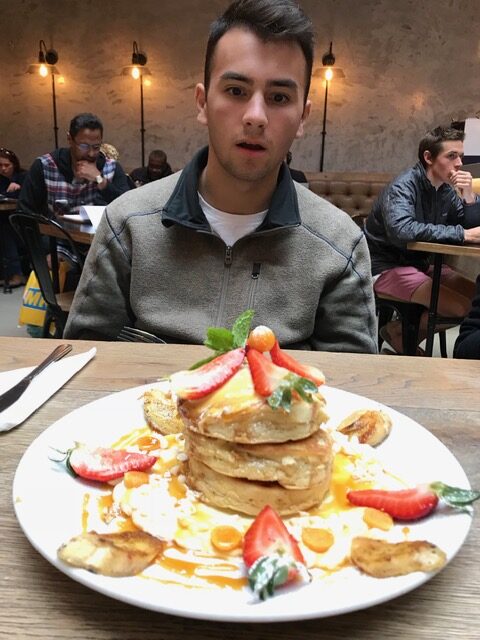Covid-19 has catapulted a relatively new type of employee to the forefront: the digital nomad. These remote workers have such a thirst for adventure that they leave a traditional, physically rooted lifestyle completely behind and set out for new horizons and new experiences – all while maintaining a full-time job. Dave Highbloom, an entrepreneur, traveler, and photographer, has a deep respect for these unique individuals and encourages them to let the world be their guide. Here are a few notable pieces of advice to consider if you’re ready to take the plunge into digital nomadism.

First and foremost, leave your ego and expectations at home – but pack your patience. This journey is more about learning from the environment, and less about changing the environment to fit your particulars. If you are annoyed and angry while traveling, it’s a safe bet that you’ll be heading straight home after only a few short days. Are you waiting too long for a cup of freshly brewed coffee? Wake-up, this isn’t Starbucks. Take the time to enjoy your surroundings. Soak up the unique scenery and respect the people you encounter, especially those making your food and drinks. Did you miss your bus? Don’t let it get you down; another will be along eventually. Take the extra time to sit and simply observe life around you. Remember, you are traveling in order to experience the world from entirely different perspectives, so take the time to notice the little things. They may be the things you remember with the greatest joy years later.
Highbloom reminds us not to take ourselves too seriously. When traveling through different countries with different cultures, you will experience awkward moments, and you will most definitely feel foolish at times. That’s OK! Rather than get upset or embarrassed, take note of the humor in the situation. Laugh at yourself, or laugh with those around you at the situation. This will put those around you at ease and may win you some unexpected friends. Don’t be afraid, but do be respectful. We are all human; we all make mistakes, especially when in unfamiliar surroundings.

One of travel’s greatest benefits is the seemingly endless opportunity to discover new things about yourself. With this in mind, challenge yourself to try things that you might normally shy away from doing. Not a hiker? Go on more hikes. Have trouble talking to strangers? Talk to everyone. Are you scared of weird food? Eat the strangest thing you can find. The key to overcoming the anxiety of trying something new is to recognize that because everything is already so different while traveling, even extreme experiences aren’t that much further afield. You may discover something about your character that you never knew existed, and what could be more exciting than that?

Food provides especially rich grounds for experimentation and self-discovery, as Dave well knows. Some destinations offer easily accessible culinary treats that gently push your boundaries without too much risk. The delicacies of Singapore’s “Satay Street” (a well-known avenue where hawkers sell an incredible range of grilled meats on sticks, accompanied by an equally impressive range of exciting sauces) and Japanese shabu shabu (a culinary experience involving plates of thin-cut meat and vegetables rapidly simmered in a fragrant, savory broth on the diners’ table) are two excellent examples of new foods that Dave was able to greatly enjoy without pushing too far outside his comfort zone. One of Dave’s favorite ways to spend an afternoon is a New Orleans style crawfish boil – a festive get-together centered on a large pot of spicy broth in which corn, potatoes, and a heap of small, lobster-like crawfish are boiled all together and then tossed over a large pad of newspaper at a communal table and eaten by hand. Add a few friends and a few beers, and you have the recipe for a wonderful afternoon.
Other local food specialties push a bit the adventurousness a bit further; Irish black pudding, for example, isn’t the sweet dessert you might be imagining, but rather a type of blood sausage made with blood, fat, and oats. While it might not make Dave’s favorite food list, it’s actually quite good – especially after a few pints of Guinness. But the richest ground for self-discovery lies with the world’s more extreme culinary offerings. In Australia, Dave was able to sample “honeypot ants”: a unique species of ant that gorges on nectar and stores it in its abdomen, making for a sweet – if audacious – treat. And some culinary adventures still remain on Dave’s checklist. Chief among these is Filipino balut, a fertilized duck egg that is nearly fully developed and is eaten raw, with only a dash of salt. While on trips to the Philippines, Dave has often been cajoled by colleagues to try balut, but has as yet left that culinary adventure untamed.
Remember, no one knows who you are when you’re in a different country, so feel free to try new things and maybe even reinvent yourself. Most importantly, when attempting new things, be mindful and respectful of local traditions and culture. While you may inadvertently offend someone, being humble and demonstrating a willingness to learn are universal characteristics that foster friendliness and a desire from those around you to teach you the local customs.

Leave a Reply